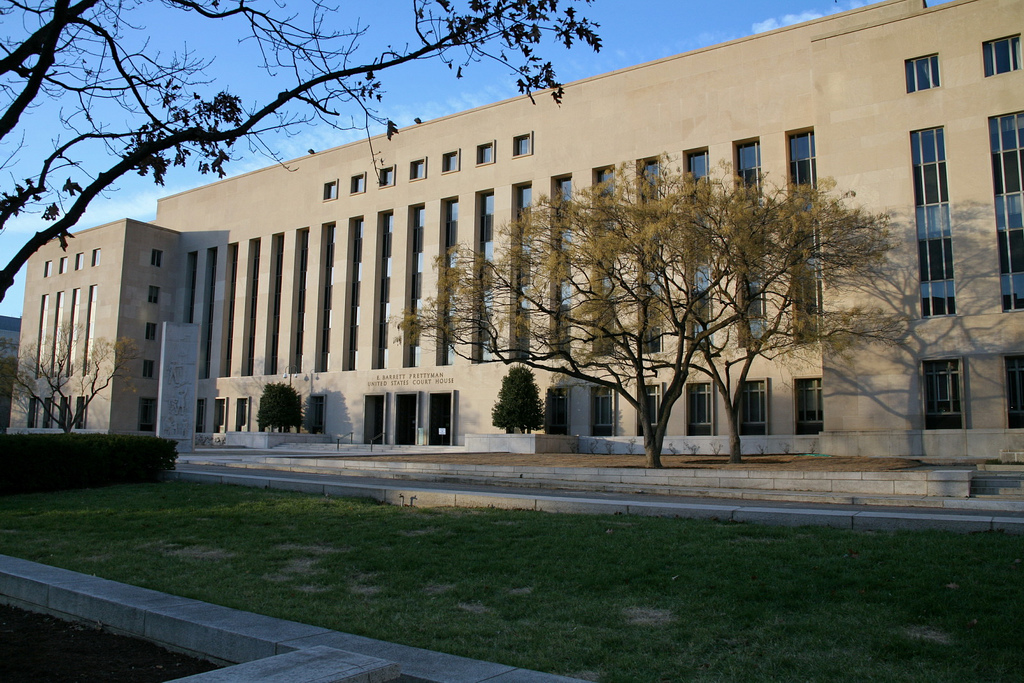RIP Federal Common Law of Foreign Relations?
The federal common law of foreign relations is a shrinking field. It should still govern many immunity-related issues, though not for the reasons courts and other scholars have given.

Published by The Lawfare Institute
in Cooperation With

The federal common law of foreign relations is a shrinking field. It should still govern many immunity-related issues, though not for the reasons courts and other scholars have given.
The federal common law of foreign relations has been in decline for decades, as Jack Goldsmith predicted more than 20 years ago. In a new paper—forthcoming in the Georgetown Law Journal as part of a symposium on Anthony J. Bellia Jr. and Bradford R. Clark’s book, “The Law of Nations and the United States Constitution”—I describe the state of the field and argue that federal common law should govern many immunity-related issues. (Other symposium papers are here, here and here.)
The field was built in part on the claim that customary international law is federal common law and in part on the claim that federal judges should displace state law when they conclude that state law is detrimental to U.S. foreign relations. Today, however, customary international law is generally applied based upon the implied intentions of Congress, rather than as free-standing federal common law. In Alien Tort Statute (ATS) cases, for example, federal common law is based on the Supreme Court’s understanding of the authority delegated to it by Congress. The high court has interpreted that grant of lawmaking authority narrowly in its trio of ATS cases: Sosa v. Alvarez-Machain, Kiobel v. Royal Dutch Petroleum and Jesner v. Arab Bank. In other areas, such as foreign affairs preemption, judicial evaluation of foreign policy problems has largely been replaced by reliance upon presidential or congressional action, or by standard constitutional analysis.
Two traditional areas of federal common law—foreign sovereign immunity and the act-of-state doctrine—are nonetheless alive and (reasonably) well doctrinally, but their status as federal common law appears somewhat unsteady. Although the Supreme Court said in 2010 that individual foreign officials’ immunity from suit in the United States is governed by “common law,” it did not explain why. Commentators have suggested that customary international law applies to immunity issues because customary international law is automatically federal common law, but there is little judicial support for such reasoning. Meanwhile, the U.S. government has argued that the president, not the courts, controls individual immunity determinations, a claim that should be rejected for reasons I set out here and here.
As for the act-of-state doctrine, the Supreme Court held a half a century ago that it is governed by federal common law because the question of adjudicating another state’s actions within its own territory is “intrinsically federal” and cannot be left to state law. But the Supreme Court has since restricted the doctrine. Recently, the court referred to it as a principle of “deference” and not a matter involving federal common law at all.
There is, however, a strong basis for applying federal common law to questions of individual foreign official immunity. To develop individual immunity rules as federal common law, courts need not characterize customary international law as federal common law, nor do they need to rely upon on the exceptional nature of foreign policy or foreign relations. Instead, the Foreign Sovereign Immunities Act (FSIA), a comprehensive statute governing all aspects of foreign state immunity in U.S. federal and state courts, provides the basis for federal common law governing official immunity.
Although lower courts once held the individual and state immunity were so closely connected that the FSIA applied to cases against individual officials as well as to cases against foreign states, the Supreme Court decided otherwise, ruling in 2010 that individual immunities are not governed by the FSIA but are controlled by common law. Nevertheless, the purpose of affording immunities to individual government officials (including former and current heads of state) is to protect the foreign state for which those individuals work (or used to work). This means that individual immunity should be consistent with the immunity afforded to foreign states under the FSIA. Courts should therefore apply and develop federal common law to protect the choices that Congress made in the FSIA.
Courts already apply federal common law to determine the attribution of substantive liability in cases involving foreign state-owned enterprises, as the Supreme Court directed in an uncontroversial case known as Bancec (U.S. v. First National City Bank). Indeed, Bancec applied federal common law to questions of substantive liability for states and their agencies and instrumentalities. Individual immunity, by contrast, is only a matter of procedural immunity from suit. The Supreme Court has emphasized its reluctance to use federal common law to create new causes of action and rules of substantive liability, but immunity rules do neither.
Other concerns about federal common law also have little or no force in the context of foreign official immunity. Critics of federal common law argue that it should not confer subject-matter jurisdiction on the federal courts under Article III of the Constitution and that the power to make federal common law cannot be inferred from a grant of subject-matter jurisdiction; that federal common law is inconsistent with the separation of powers because Congress, not the courts, should make law; and that it cannot preempt state law under the Supremacy Clause. But one need not decide that an issue of foreign official immunity alone confers Article III subject-matter jurisdiction upon the federal courts, nor that subject-matter jurisdiction itself implies the power to make federal common in cases about foreign official immunity. Cases against foreign officials may involve diversity or federal question jurisdiction (based on a federal statute that creates or authorizes the creation of a federal cause of action). Those unusual cases that do not should probably go forward in state, not federal, court on statutory grounds. Although the FSIA confers subject-matter jurisdiction over cases against foreign sovereigns, if they are not immune, there is no comparable statute conferring subject-matter jurisdiction over cases against foreign officials who are not immune. A few federal district courts have equated common-law immunity with lack of subject-matter jurisdiction (see the 2017 case Lewis v. Mutond), but those courts give no convincing basis for doing so. And the power to make federal common-law rules is inferred from the FSIA, not from a grant of subject-matter jurisdiction.
Concerns about separation of powers are minimized in the immunity context because foreign official immunity involves only a limited range of judicial decision-making. Many, though not all, issues will be resolved based on the FSIA. Some can be resolved based on the content of customary international law, to which Congress sought to adhere when the FSIA was enacted. Some discrete factual issues may be resolved largely through deference to the executive branch, such as whether or not a particular person is a head of state. Likewise, Supremacy Clause issues are minimized because many of those cases will be brought under federal law causes of action, (meaning that state substantive law is not displaced), and because foreign state immunity is not an area traditionally regulated by state law.
Foreign official immunity is a narrow field, but it can raise important legal and political issues. Consider, for example, the possible immunity of Russian President Vladimir Putin from civil or criminal suit in the United States. Applying federal common law, state or federal courts would hold that as a sitting head of state, Putin is entitled to immunity. Customary International law is clear: Sitting heads of state are immune from the jurisdiction of foreign domestic courts. (Immunity before international tribunals such as the International Criminal Court is a different legal question.) Congress enacted the FSIA to give courts—not the president—the power to make immunity determinations and to ensure general compliance with customary international law. Historically, courts applied immunity as a matter of general law, and they should continue to do so today as a matter of federal common law. President Trump’s personal view on whether Putin should or should not be immune from suit is irrelevant.
Federal common law of foreign relations rests neither upon the classification of customary international law as federal common law, nor upon judicial assessment of foreign relations dangers. At least when it comes to immunity, it is best understood and best legitimated as fundamentally interstitial, hemmed in largely by federal statutes but also by international law and even stare decisis, all of which minimize potential constitutional objections.




